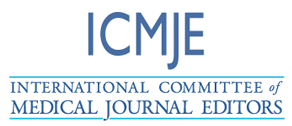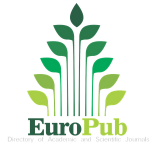Evaluation of Acute Kidney Injury and Hypomagnesemia in Patients with Head and Neck Cancer Treated With Cisplatin and Radiotherapy
DOI:
https://doi.org/10.55677/IJCSMR/V3I1-04/2023Keywords:
Head and Neck Neoplasms, Acute Kidney Injury, Hypomagnesemia, Cisplatin, RadiotherapyAbstract
Hypomagnesemia is one of the most common side effects for patients who receive cisplatin in chemotherapy. However, the relative importance between Hypomagnesemia and cisplatin nephrotoxicity has not been thoroughly discussed. Acute Kidney Injury (AKI) in patients who get cisplatin is frequent, and the evaluation of kidney functions in patients taking nephrotoxic drugs is critical. The objective is to evaluate AKI incidence based on the AKIN scale and Hypomagnesemia in patients with head and neck cancer (HNC) who have taken cisplatin. 50 patients with HNC treated with three cycles of cisplatin (100mg/m2/dose) were evaluated. Blood and urine samples were collected 24h before taking the cisplatin, 24h after infusion, 48h after each application, and 35 days after finishing the treatment (C-reactive protein, creatinine, glomerular filtration rate (GFR), Lactic dehydrogenase, plasma magnesium). AKI was observed in 78% of the patients. There was an increase in creatinine, and urea and a decline in GFR after each cisplatin cycle. An increase in creatinine, CRP, and reduction of GFR were evidenced in AKI patients compared to non-AKI patients. AKI was observed in 78% of patients with HNC patients treated with cisplatin, as well as a correlation of creatinine and GFR while showing a kidney injury. There was a decrease in plasma magnesium even in the samples of patients without kidney injury. However, there was no significant statistical distinction in the AKIN groups, which shows that Hypomagnesemia is an essential effect of cisplatin even in patients without kidney injury.
References
Muraki K, Koyama R, Honma Y, et al. Hydration with magnesium and mannitol without furosemide prevents the nephrotoxicity induced by cisplatin and pemetrexed in patients with advanced non-small cell lung cancer. J Thorac Dis. 2012 Dec; 4 (6): 562-8.
Dimke H, Monnens L, Hoenderop J G T, et al. Evaluation of Hypomagnesemia: Lessons From Disorders of Tubular Transport. Am J Kidney Dis. 2013 Aug; 62(2):377-83.
Kaplinsky C, Alon U. Magnesium Homeostasis and Hypomagnesemia in Children With Malignancy.Pediatr Blood Cancer. 2013 May; 60 (5):734–740.
Launay-Vacher V, Oudard S, Janus N, et al. Prevalence of renal insufficiency in cancer patients and implications for anticancer drug management: the renal insufficiency and anticancer medications (IRMA) study. Cancer. 2007 Sep;110(6):1376-84.
Alves S C, Tomasi C T, Constantino L, et al. Hypomagnesemia as a risk factor for the non-recovery of the renal function in critically ill patients with acute kidney injury. Nephrol Dial Transplant. 2013 Apr; 28 (4):910-6.
Hirai S, Kaida S, Ito T, et al. Magnesium premedication prevents Cisplatin-induced nephrotoxicity in patients with esophageal and hypopharyngeal cancer. Gan To Kagaku Ryoho. 2013 Jun; 40(6):743-7.
Lameire N, Van Biesen W, Vanholder R. Electrolyte disturbances and acute kidney injury in patients with cancer. Semin Nephrol 2010 Nov; 30(6):534-47.
Sanchez-Gonzalez PD, Lopez-Hernandez FJ, Lopez-Novoa JM, et al. An integrative view of the pathophysiological events leading to cisplatin nephrotoxicity. Crit Rev Toxicol. 2011; 41(10):803-21.
Gehan EA, George SL. Estimation of human body surface area from height and weight. Cancer Chemother Rep. 1970 Aug; 54(4): 225-35.
Aapro M, Launay-Vacher V. Importance of monitoring renal function in patients with cancer. Cancer Treat Rev. 2012 May; 38(3): 235-40.
Launay-Vacher V, Oudard S, Janus N, et al. Prevalence of renal insufficiency in cancer patients and implications for anticancer drug management: the renal insufficiency and anticancer medications (IRMA) study. Cancer. 2007 Sep; 110(6):1376-84.
Mehta RL, Kellum JA, Shah SV, et al. Acute kidney injury network: report of an initiative to improve outcomes in acute kidney injury. Crit Care. 2007; 11(2): R31.
Pepys MB, Hirschfield GM. C-reactive protein: a critical update. J Clin Invest. 2003 Jun; 111(12):1805-12.
Kaplinsky C, Alon US. Magnesium homeostasis and hypomagnesemia in children with malignancy. Pediatr Blood Cancer. 2013 May; 60(5):734-40.
Winquist E, Oliver T, Gilbert R. Postoperative chemoradiotherapy for advanced squamous cell carcinoma of the head and neck: a systematic review with meta-analysis. Head Neck. 2007 Jan; 29(1): 38-46.
Pfister DG, Ang KK, Brizel DM. Head and neck cancers. J Natl Compr Canc Netw. 2011 Jun; 9(6): 596-650.
Miller RP, Tadagavadi RK, Ramesh G, et al. Mechanisms of cisplatin nephrotoxicity. Toxins (Basel). 2010 Nov; 2(11): 2490-518.
Sanchez-Gonzalez PD, Lopez-Hernandez FJ, Lopez-Novoa JM, et al. An integrative view of the pathophysiological events leading to cisplatin nephrotoxicity. Crit Rev Toxicol. 2011 Nov; 41(10): 803-21.
Lopes JA, Fernandes P, Jorge S, et al. Acute kidney injury in intensive care unit patients: a comparison between the RIFLE and the acute kidney injury network classifications. Crit Care. 2008 Aug; 12(4): R110.
Hirai S, Kaida S, Ito T, et al. Magnesium premedication prevents Cisplatin-induced nephrotoxicity in patients with esophageal and hypopharyngeal cancer. Gan To Kagaku Ryoho. 2013 Jun; 40(6):743-7.
Lameire N, Van Biesen W, Vanholder R. Electrolyte disturbances and acute kidney injury in patients with cancer. Semin Nephrol. 2010 Nov; 30(6): 534-47.
Alves SC, Tomasi CD, Constantino L, et al. Hypomagnesemia as a risk factor for the non-recovery of the renal function in critically ill patients with acute kidney injury. Nephrol Dial Transplant. 2013 Apr; 28(4):910-6.
Yokoo K, Murakami R, Matsuzaki T, et al. Enhanced renal accumulation of cisplatin via renal organic cation transporter deteriorates acute kidney injury in hypomagnesemic rats. Clin Exp Nephrol. 2009 Dec; 13(6):578-84.
Peres LA, Cunha Junior AD, Schafer AJ, et al. Biomarkers of acute kidney injury. J Bras Nefrol. 2013 Jul-Sep; 35(3): 229-36.
Peres LA, Cunha Junior AD. Acute nephrotoxicity of cisplatin: molecular mechanisms. J Bras Nefrol. 2013 Oct-Dec; 35(4):332-40.
Sandilands, E. A., Dhaun, N., Dear, J. W., & Webb, D. J. Measurement of renal function in patients with chronic kidney disease. British journal of clinical pharmacology. 2013, 76(4), 504–515.












